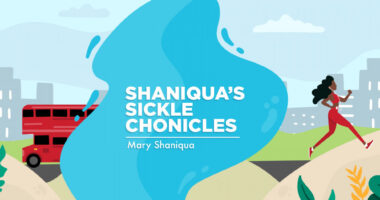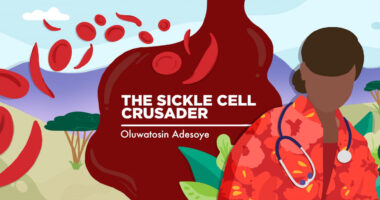New Rules in UK Allow More Black Donors to Give Blood for SCD

Blood donation restrictions in England that had prevented at least 12,000 Black donors from giving blood were lifted by the country’s government late last year in what the Sickle Cell Society called “a landmark change.”
Now, citing “an urgent need” in the U.K. for blood donation from Black donors — today including some Blacks previously turned away due to having partners of African lineage — the Sickle Cell Society is working to raise awareness about the changes in England’s blood donation rules.
To get the word out, the Society has partnered with other nonprofits and the National Health Service Blood and Transplant (NHSBT) on a social media campaign.
The campaign’s key target: the 1,300 Black donors needed each month to donate blood for transfusions for sickle cell disease (SCD) patients, as well as for childbirth, cancer treatments, surgeries, emergencies, and other medical conditions.
“The importance of a readily available supply of ethnically matched blood to treat people with sickle cell cannot be underestimated,” Tracy Williams, blood donation lead at the Sickle Cell Society, said in a press release. “Blood from people with the same ethnic background is vital to keeping those most severely affected by sickle cell alive and well, enabling them to lead fulfilling lives and pursue their goals.”
The social media campaign, led by the Sickle Cell Society, the Terrence Higgins Trust, the African Caribbean Leukaemia Trust, and One Voice Network, aims to heighten awareness of significant rule changes enacted in the U.K. last year that now make it easier for Black donors to contribute blood and plasma.
England’s government removed what was widely viewed as a discriminatory blood donation restriction that required a three-month deferral period for potential donors with partners who might have had sex in geographical areas where human immunodeficiency virus (HIV) or acquired immunodeficiency virus (AIDS) are common. According to the Sickle Cell Society, such areas include most of sub-Saharan Africa.
Now, all potential donors instead are asked the same general questions about recent sexual activity and are eligible to donate if risks of HIV infection are deemed to be low.
Removing that previously mandatory question means that more people, especially those of African descent or with Black African partners, will be able to donate blood in the U.K.
According to the NHS Blood and Transplant, 12,000 people of Black African descent had previously been “deferred” and now may be eligible to donate blood. Those potential donors have been notified by the NHSBT about the rule changes.
The awareness campaign will continue to apprise people from Black African communities of the new rules, in hopes of encouraging more blood donations.
“There is currently an urgent need for more Black donors in the UK,” the Sickle Cell Society said, particularly to aid patients with SCD.
In SCD, blood transfusions are used to provide patients with healthy red blood cells. These transfusions help mitigate anemia and prevent disease complications.
The best blood type match for patients who require frequent transfusions, including many SCD patients, comes from donors of the same race or ethnic group. According to the American Red Cross, closely matched blood helps prevent transfusion complications.
“The Sickle Cell Society’s Give Blood, Spread Love project welcomed the removal of the rule preventing anyone with ‘a partner who has been sexually active in parts of the world where HIV/AIDS is very common,’ such as ‘most countries in Africa’ from donating blood for a period of three months. In reality, the three-month deferral period meant that many potential Black African donors, and others in long-term relationships, were permanently prevented from donating lifesaving blood and plasma,” Williams said.
Before the rule change by England’s Department of Health and Social Care in December, the question regarding a partner’s sexual activity had already been removed from protocols in Scotland and Wales. That decision had followed a review of scientific evidence by the FAIR — For the Assessment of Individualized Risk — steering group on the latest research on epidemiology and infection risk. The review had been led by NHSBT, and had involved other patient and stakeholder organizations.
Despite the changes to the blood donation risk assessment in Wales and Scotland, however, that question was still retained in England.
Part of the Sickle Cell Society’s work now, Williams said, is building trust with Blacks across the U.K. and engaging the community on the topic of blood donation.
“We know how important securing trust from Black communities is when asking people to donate, and we are hopeful that this significant and overdue change will encourage more potential Black-heritage donors to come forward, and that the 12,000 people previously prevented from giving blood will recognize this call to action and restart their blood donation journey,” Williams said.







